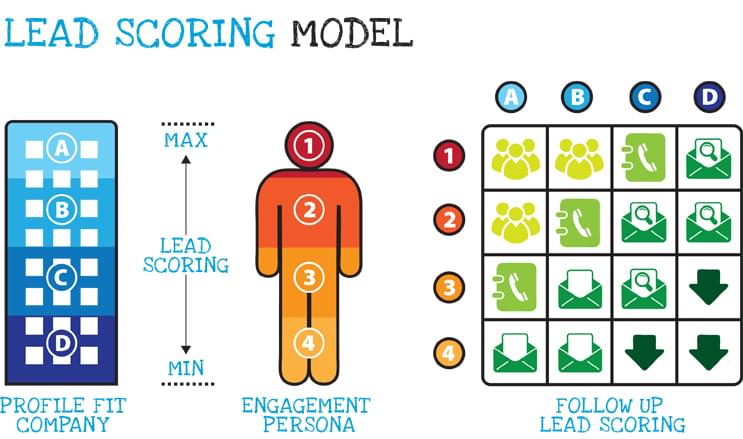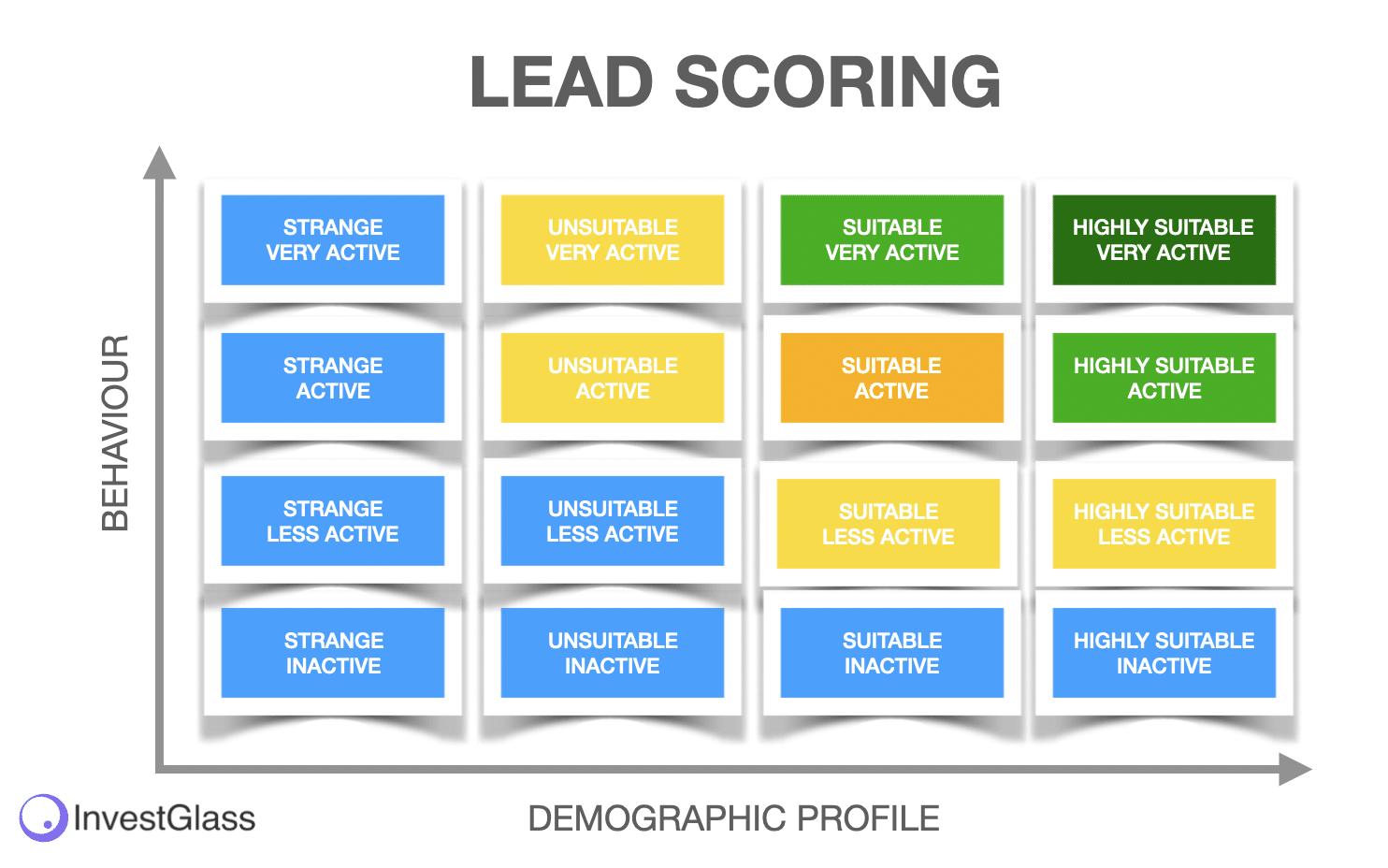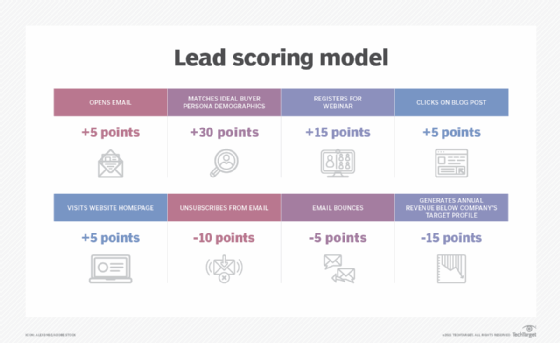Effective Lead Scoring Strategies to Boost Your Sales Success. Discover how to implement Effective Lead Scoring Strategies that can significantly Boost Your Sales Success. Easy tips for real results!

<<<<< Buy Now from Official offer >>>>>
What is Lead Scoring?
Lead scoring is a systematic method to rank prospects. It evaluates various attributes & behaviors of leads to predict their potential. Scoring helps to prioritize efforts on leads likely to convert. Different stages of the buying cycle are represented by scores. Thus, focusing on hot leads becomes straightforward. Sales & marketing teams often collaborate to create a scoring system. Having a defined model boosts conversion rates significantly.
Why Lead Scoring Matters
Implementing effective lead scoring strategies can dramatically affect your sales success. It helps allocate resources efficiently. Teams can invest time on leads showing genuine interest. Higher conversion rates often result from concentrating on qualified leads. And another thing, lead scoring reduces wasted marketing efforts. With better insights, decision-making is simplified for the sales team. Understanding which leads to prioritize results in improved conversion speed.
Components of an Effective Lead Scoring System
To create an efficient lead scoring system, consider several essential components. Each factor contributes to the overall score leads receive.
- Demographic Information: Age, gender, location, & job title.
- Behavioral Data: Website visits, content downloads, & email interactions.
- Engagement Levels: Interaction with sales or marketing materials.
- Buying Intent: Inquiries, requests for demos, or trial sign-ups.
These components form the backbone of your scoring model. Keeping a balance is crucial. Focus on both demographic & behavioral factors for a well-rounded approach.
Building a Lead Scoring Model
Creating a lead scoring model involves several steps. Start by defining your ideal customer profile (ICP). Analyze current customers to identify common traits. Next, assign values to traits in your scoring system. Use a points-based system for clarity.
| Attribute | Points |
|---|---|
| Industry Match | 10 |
| Job Title Relevance | 5 |
| Website Visits | 2 |
| Email Opens | 1 |
Ensure to adjust weights over time. Track the conversion rates of leads across different scores. This way, the model evolves based on actual outcomes.
Types of Lead Scoring
There are two main types of lead scoring systems: explicit & implicit.
- Explicit Lead Scoring: Involves information willingly provided by leads. This includes job title, company, & location.
- Implicit Lead Scoring: Based on behavioral data. Metrics like website activity & email engagement fall here.
Combining both types leads to a comprehensive scoring method. Explicit data provides foundational insight, while implicit data reveals engagement levels.
Automating Lead Scoring
Automating the lead scoring process can streamline workflows. It minimizes manual data entry & ensures accuracy. Many marketing automation platforms offer built-in tools for scoring. By integrating these tools, teams can receive real-time updates on lead scores. Using automation also allows immediate responses when scores change significantly.
| Benefit of Automation | Description |
|---|---|
| Time-Saving | Reduces manual tasks for the sales team. |
| Accuracy | Minimized errors in lead data handling. |
| Real-Time Updates | Immediate adjustments to lead scores as data changes. |
| Focus on High-Value Leads | Saves time by prioritizing leads that matter. |
This approach allows sales teams to focus on what’s important.
Analyzing Lead Scores
Evaluating lead scores regularly is essential. Data should flow into the system to track lead interactions. Teams need to analyze which scores correlate well with conversions. By refining the scoring model, sales strategies improve continually. Use A/B testing to differentiate the effectiveness of various scoring attributes.
Collaboration Between Sales & Marketing Teams
Collaboration between sales & marketing is vital in lead scoring. Strong communication bridges the gap between both teams. Marketing provides foundational data while sales shares insights on lead conversions. Conduct regular meetings to update scoring criteria based on feedback.
Blockquote:
Effective collaboration creates a seamless flow of information. – Kaylie Kuphal
Regular feedback enhances the scoring process & maximizes productivity.
Monitoring & Adjusting Your Lead Scoring Model
Consistent monitoring of your lead scoring model is necessary. The business landscape & audience behaviors change over time. Make adjustments based on market trends & statistical analysis. Regularly review & refine scoring attributes. Solicit feedback from sales representatives on scoring effectiveness as well.
- Adapt to New Data: Incorporate fresh information into the model.
- Assess Conversion Rates: Calculate if leads convert as intended.
- Maintain Relevance: Ensure the factors are still applicable.
This strategy keeps your scoring model relevant & effective.
Integrating Lead Scoring with CRM Systems
Integrating lead scoring strategies with Customer Relationship Management (CRM) systems can enhance operations. Many CRM platforms offer lead scoring functionality. Data from various sources can flow into the CRM. This provides a centralized view of lead information. Sales teams gain better insights & can act quickly based on scores.
| CRM Feature | Description |
|---|---|
| Lead Tracking | Follow leads through the sales funnel. |
| Score Updates | Real-time scoring adjustments occur automatically. |
| Performance Analytics | Analyze the effectiveness of lead scoring. |
| Segmentation | Easily categorize leads into various groups. |
Effective integration enhances user experience & sales efficiency.
Measuring the Success of Lead Scoring
Determining the success of your effective lead scoring strategies involves specific metrics. Monitor conversion rates & sales cycle length. Calculate how many leads reached the sales stage & the quality of those leads.
- Conversion Rate: Percentage of leads turning into customers.
- Sales Cycle Length: Time it takes from lead generation to conversion.
- Lead Quality: Assessment of how many qualified leads convert.
By analyzing these metrics, adjustments to scoring criteria can be made effectively.
Utilizing Data from Lead Scoring Analysis
Data collected during lead scoring analysis is invaluable. It uncovers trends & patterns in buyer behavior. Use this information to refine marketing strategies. You can create targeted content based on lead engagement. Personalization increases the likelihood of conversions.
Keep a keen eye on lead progression. Understanding lead patterns will inform future campaigns.
Case Studies of Successful Lead Scoring Applications
Many businesses have successfully applied lead scoring strategies. Examining these cases offers insights into effective practices.
| Company | Outcome |
|---|---|
| Company A | Increased conversion rates by 25%. |
| Company B | Reduced sales cycle length by 30%. |
| Company C | Boosted revenue by 40% using scoring. |
| Company D | Improved lead engagement by 35%. |
Reviewing these success stories can inspire your own strategies. Learning from their approaches can be beneficial in your journey.
My Experience with Lead Scoring
In my experience, using effective lead scoring strategies shifted our sales process significantly. We saw a marked improvement in our ability to prioritize leads. The automated tool maintained the scores dynamically. This integration enhanced our overall efficiency & revenue.
<<<<< Buy Now from Official offer >>>>>

Feature of LeadRocks – As well as Exclusive
LeadRocks – As well as exclusive provides a suite of tools designed for businesses aiming to enhance their lead generation processes. With features like lifetime access to all future Growth Plan updates, users enjoy continuous improvements & new functionalities. And don’t forget, if the plan name changes, the deal automatically aligns with the new designation, ensuring that features remain accessible without the hassle of needing to upgrade separately.
Users must redeem their unique code(s) within 60 days of purchase, which ensures prompt setup & access. The platform enables stacking unlimited codes, allowing previous AppSumo customers to purchase additional codes to expand their feature limits. Existing customers also benefit from being grandfathered into new feature limits, which enhances their user experience without extra costs.
The extensive database of over 100 million B2B contact details empowers users to search effectively by job title, company name, URL, location, industry, or team size. Each credit reveals comprehensive contact data, including enriched LinkedIn URLs with emails, phone numbers, & additional information. Users can store contact information in organized LeadRocks lists & conveniently export this data to CSV files. And another thing, free access to guides & webinars ensures that users can maximize their use of the platform efficiently.
Challenges of LeadRocks – As well as Exclusive
Although LeadRocks – As well as exclusive offers numerous benefits, users may encounter challenges. One potential issue lies in the learning curve associated with mastering all features, especially for newcomers to lead generation tools. Some users have noted that the initial navigation & configuration can feel overwhelming, creating frustration during the onboarding process.
Another concern pertains to feature limitations. While the extensive database contains millions of B2B contacts, users have reported occasional difficulties in retrieving specific details or having queries yield suboptimal results. Feedback indicates that focusing on searching with precise parameters can improve outcomes. Adapting search strategies can help users navigate this limitation more effectively.
Compatibility issues with other software platforms can also arise. Integration with existing CRM systems may not always run smoothly, which can lead to difficulties in establishing a seamless workflow. Users experiencing these challenges have benefited from connecting with customer support or exploring available resources to address integration problems.
Price of LeadRocks – As well as Exclusive
The pricing structure for LeadRocks – As well as exclusive is designed to accommodate diverse user needs. With scalable options, users can choose a plan that suits their usage requirements, ensuring flexibility in investment. Below is a detailed description of the pricing for various plans:
| Plan Name | Price |
|---|---|
| Plan 1 | $89 |
| Plan 2 | $178 |
| Plan 3 | $267 |
This tiered pricing allows users to select a plan based on their lead generation demands & budget. The flexibility in pricing makes LeadRocks – As well as exclusive an attractive option for many businesses.
Limitations LeadRocks – As well as Exclusive
User experience difficulties can also arise. Some customers have reported that the interface may not always be intuitive, leading to longer onboarding & training times. Focusing on user experience improvements could enhance overall satisfaction with the platform.
Lastly, current integrations with other popular tools can be limited. Users might wish to connect LeadRocks – As well as exclusive with multiple software platforms, but hurdles can prevent seamless communication. Expanding integration options could make the tool more versatile & appealing.
Case Studies
Multiple users have shared their success stories with LeadRocks – As well as exclusive. One case involved a small software company that faced challenges in lead generation. After implementing the platform, they accessed targeted contacts that increased their conversion rate by 30%. They particularly valued the enriched contact information, enabling meaningful outreach efforts.
Another user, a marketing agency, experienced a shift in their client acquisition strategy by using LeadRocks – As well as exclusive. They discovered a wealth of leads within their target industries, leading to a 50% increase in qualified leads. Feedback emphasized the importance of utilizing the detailed search options available to reach decision-makers effectively.
A third case highlighted an e-commerce company that struggled with stagnant growth. Incorporating LeadRocks – As well as exclusive allowed them to engage a broader audience, resulting in a 40% boost in sales within a few months. They reported that the CSV export feature streamlined data organization, enhancing their targeted marketing efforts.
Recommendations for LeadRocks – As well as Exclusive
Maximizing benefits from LeadRocks – As well as exclusive involves adopting specific strategies. To improve data accuracy, users should consistently update their lists to discard outdated contacts. Regular maintenance can enhance the quality of leads generated, ensuring effective outreach.
Using advanced search filters effectively is crucial. By narrowing down searches based on industry, company size, or location, users can obtain more relevant results. Leveraging these filters increases the likelihood of finding high-value leads that suit specific business needs.
Pairing LeadRocks – As well as exclusive with additional tools can further enhance lead generation efforts. Integrating a robust CRM can help track client interactions, while data analysis tools aid in evaluating performance & adjusting strategies accordingly. Combining these tools optimizes the lead scoring process for improved sales outcomes.
Key Strategies for Effective Lead Scoring
- Define Ideal Customer Profile (ICP)
- Utilize Behavioral Data
- Implement Multi-Touch Attribution
- Set Up Scoring Criteria
- Regularly Review & Adjust Scoring
Types of Lead Scoring Techniques
- Explicit Scoring
- Implicit Scoring
- Predictive Scoring
- Qualitative Scoring
- Engagement Scoring
Using Lead Scoring to Accelerate Sales
- Focus on High-Value Leads
- Align Sales & Marketing Teams
- Automate Lead Nurturing Workflows
- Implement A/B Testing
- Monitor Lead Engagement

What is lead scoring?
Lead scoring is a systematic process of assigning a numerical value to each lead based on their behavior, engagement, & demographics. This helps businesses prioritize leads for sales follow-up.
Why is lead scoring important for sales?
Lead scoring helps sales teams focus on the most valuable prospects, improving efficiency & increasing the chances of closing deals. It allows for better allocation of resources & efforts.
How do I create an effective lead scoring model?
An effective lead scoring model combines both qualitative & quantitative metrics. Start by identifying key characteristics of your ideal customer, then assign point values to various attributes & behaviors.
What factors should be included in lead scoring?
Key factors can include demographic information, engagement level with your content, website visits, email interactions, & social media activities. Each of these factors can contribute to a lead’s score.
How often should I review my lead scoring system?
Regular reviews of your lead scoring system are essential to ensure it aligns with current sales strategies & market trends. A quarterly review is often recommended.
Can lead scoring be automated?
Yes, lead scoring can be automated using CRM systems & marketing automation tools. These technologies can track interactions & adjust scores based on predefined criteria.
What is the difference between explicit & implicit lead scoring?
Explicit lead scoring is based on information provided directly by leads, such as job title or company size. Implicit lead scoring considers behaviors like email opens & website visits.
How can I improve my lead scoring accuracy?
Improving lead scoring accuracy can be achieved by regularly updating your lead attributes, incorporating feedback from sales teams, & analyzing closed deals to refine scoring criteria.
What tools can assist with lead scoring?
There are various tools available, such as CRM software, marketing automation platforms, & dedicated lead scoring solutions. These tools can streamline the scoring process & provide insights.
Is lead scoring suitable for all types of businesses?
Lead scoring can benefit most businesses, particularly those with a sales process involving multiple steps or longer sales cycles. Be that as it may, smaller businesses may find a simpler approach sufficient.
How do I train my sales team on lead scoring?
Training your sales team involves educating them on the lead scoring system, explaining how to interpret scores, & providing guidelines on how to follow up with different leads based on their scores.
What are some common mistakes to avoid in lead scoring?
Common mistakes include not aligning scores with actual sales outcomes, using outdated data, or overcomplicating the scoring model. Regular audits can help avoid these issues.
What metrics should I analyze to refine my lead scoring?
Analyzing metrics such as conversion rates, engagement levels, & feedback from sales can provide valuable insights into the effectiveness of your lead scoring system.
How do lead scores impact my marketing strategy?
Lead scores inform marketing decisions by identifying which types of leads convert best. This enables marketers to develop targeted campaigns that focus on high-scoring leads.
Can I use lead scoring for existing customers?
Yes, applying lead scoring to existing customers can help identify upsell or cross-sell opportunities & guide retention strategies based on engagement levels.
What role does customer feedback play in lead scoring?
Customer feedback can provide insights into what makes leads convert, helping refine scoring criteria. Understanding customer preferences & pain points enhances the model’s effectiveness.
How can I ensure my lead scoring system stays relevant?
To maintain relevance, continuously monitor market conditions, update scoring criteria based on new data, & solicit feedback from both sales & marketing teams.
<<<<< Buy Now from Official offer >>>>>
Conclusion
In summary, using effective lead scoring strategies can significantly enhance your sales success. By understanding your leads better & prioritizing them based on their behavior & interests, you can focus your efforts where they matter most. This means spending less time on unproductive leads & more time connecting with those likely to convert. Remember, the goal is to build relationships & trust with potential customers. So, take the time to refine your approach & watch how these Effective Lead Scoring Strategies to Boost Your Sales Success can transform your sales game for the better!
<<<<< Buy Now from Official offer >>>>>
Leave a Reply
You must be logged in to post a comment.